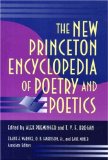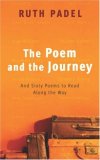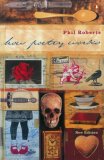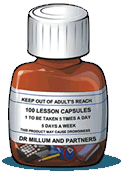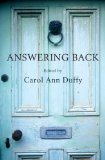Poetry: 'each word has a little music of its own'
It is a test... that genuine poetry can communicate before it is understood. (T S Eliot: from 'Dante', 1929)
Coleridge, according to Ruth Padel in The Poem and the Journey, divided readers into four types. The best is a 'Moghul diamond... who profits by what they read and enables others to profit by it too'. 'Sand-glasses' remember nothing of what they read, merely passing the time; 'strain-bags' remember 'merely the dregs of what they read' and worst are 'sponges', who 'absorb all they read and return it nearly in the same state only a little dirtier'. This page lists some books and websites to guide you on the journey of poetic discovery to becoming a 'Moghul diamond'.
- Ruth Padel: The Poem and the Journey: And Sixty Poems to Read Along the Way
: 'It's a generous, likable, diligent and smart piece of work,' says Andrew Motion in a review, 'aimed primarily at readers of roughly A-level age (or so the conversational tone seems to imply) but also likely to appeal to all non-specialists who are interested in contemporary poetry.'
- Ruth Padel: 52 Ways of Looking at a Poem: A Poem for Every Week of the Year
- Philip Davies Roberts: How Poetry Works
- an appreciation of poetry in English that emphasises spoken language as the basis of this art. Illustrated with an anthology of poems written over the past thousand years.
- James Fenton: An Introduction to English Poetry: a short introduction to the basic forms
- Thomas Carper and Derek Attridge: Meter and Meaning: an introduction to rhythm in poetry
- Alex Preminger and Terry Brogan (editors): The New Princeton Encyclopedia of Poetry and Poetics: expensive, but then it is described by one academic as 'the Bible of Poetry Studies'
- Jeffrey Wainwright: Poetry: the basics
- Michael Schmidt: Lives of the Poets: from Chaucer to Keats, from Yeats to Heaney, from Whitman to Walcott - an engaging whistle-stop tour.
Poetry websites
For sites on individual poets and periods, please use the menu on the left.- British Council Poetry Quartets online: over two hours of audio extracts from the British Council/Bloodaxe poetry recordings. There are some lively flash movies to accompany some of the poems
- The Mouse and the Muse: ideas for poetry and ICT from Trevor Millum including downloadable poems and ideas on using a word processor creatively. You can order a copy of Trevor's Warning: Too much schooling can damage your health from the NATE bookshop.
- The Poetry Archive: "well on its way to becoming the world's largest and best equipped collection of poets reading their own work," says Andrew Motion, one of the prime movers behind the site. Includes priceless archive readings from poets of the past such as Tennyson, Sassoon, Larkin and Yeats, classroom favourites such as Armitage and Causley, and lesson plans too.
- Poetic form from Wikipedia, the free encyclopedia: a useful list, with examples, of over 130 terms.
- Poetry Book Society: devoted to encouraging the appreciation of poetry - with a book club and useful links to poets' sites.
- Poetryclass: lively ideas for teaching modern poetry from the Poetry Society, with links, interviews with poets, etc.
- Poetryexpress: an American site that allows users to experiment with poetry. The emuse poetry generator works well with an interactive whiteboard.
- Poets.org from the Academy of American Poets: attractive site which features new poets each month and is a useful source of work by modern poets. There's a section 'for educators', with topics such as Great Poems to Teach.
- Poetry Foundation: another rich American poetry site - a good place find new poems for students of all ages, with some recordings too.
- The Poetry Trust: runs the Aldeburgh Poetry Festival and a number of other events in East Anglia, including popular courses for teachers.
- Prosody: reading and definitions from Dr Alan Gillis of the University of Edinburgh: basic design but it crams in a lot of useful information.
- Sheerpoetry: 'an innovative and constantly changing new UK poetry site'. Sections for teachers and students from primary to university level as well as the general poetry reader. The content has a special emphasis on Carol Ann Duffy, Gillian Clarke, Seamus Heaney and Simon Armitage but classic poets are not neglected. Modest subscription required.
Finding poetry online
See the websites listed above and the usual sources of online texts listed on the literature links page, in particular:- Representative Poetry Online from the University of Toronto: the Timeline allows you to locate poets from any period quickly.
- Project Gutenberg
